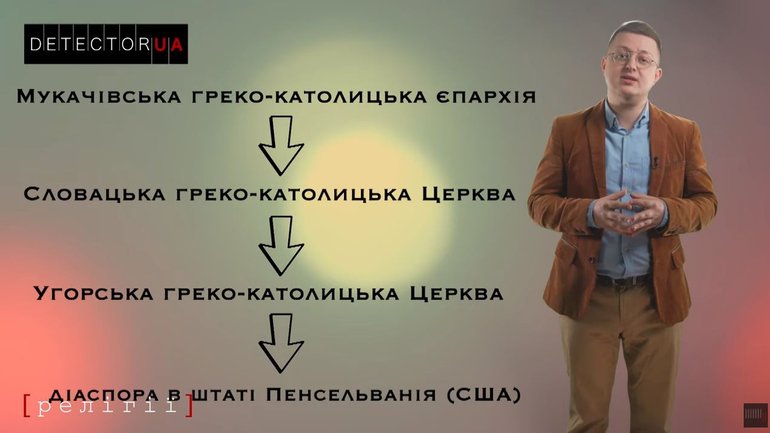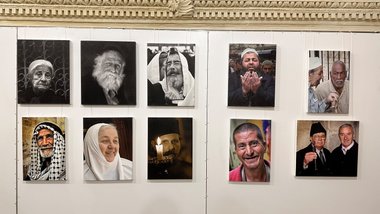Attempts of Greek Catholics of Transcarpathia to unite with the UGCC are suppressed by Hungarians and Slovaks, - expert opinion

This was stated by religious scholar Dmytro Horyevoy in the program "Detector. Religions" on the YouTube channel DetectorUA, Religiyna Pravda reports
Horyevoy recalled that in the XVIII century, the first division of Poland took place, and Galicia became part of the Habsburg monarchy. Thus, the Galician and Transcarpathian Greek Catholics found themselves within the same state, and therefore, the reasons for a separate existence no longer continued.
At the same time, the idea of uniting Greek Catholics officially appeared on the agenda: Bishop Andriy of Bachyn was to lead them as Metropolitan of Mukachevo. However, thanks to the Hungarian lobby, this process was disrupted.
"Since then, the Magyars have worked hard to separate the Ukrainians from their brothers behind the Carpathian Ridge and therefore strongly opposed unification," the expert explained.
Since the restoration of Ukraine's independence, several attempts have been made to unite, but this has not happened. Hungarians and Slovaks, who have their own lobby in Transcarpathia and even political interest, are not interested in this: there are many Hungarian and Slovak maps on the internet with the inclusion of Transcarpathia in Hungary or Slovakia, Horyevoy said.
He added that the previous head of the Eparchy of Mukachevo, Bishop Milan Shashik, who died last year, did a lot to develop the diocese, but he, as a Slovak by nationality, was not interested in Ukrainians uniting among themselves. But he strengthened ties with the Slovaks.
This line is continued by the current hierarch, Bishop NIl Lushchak. Now the Ukrainian authorities have taken up the task of resolving this issue, and Prime Minister Denis Shmygal even visited Pope Francis on this occasion.
But Vladyka nil is not only not trying to take advantage of the historic chance to unite with his fellow believers from the UGCC, but on the contrary, is doing everything possible to disrupt the unification.
"He distributes a message in which he calls the structure headed by him no longer a diocese, but an entire Mukachevo Church. You must agree, it is ambitious. Church of one region. Is it possible that the hierarch strives to become a Transcarpathian Patriarch?"- the religious scholar asks.
In addition, Bishop Nil prohibits collecting signatures for local pro-Ukrainian priests and believers who seek unity with the UGCC.
The stalling of the association was explained by the fact that there are various ideological groups in the diocese, in particular, the conditional group of "Rusyns", who do not have Ukrainian but are carriers of some abstract Transcarpathian identity.
Bishop Ivan Semediy, Bishop of Milan's predecessor at the throne of Mukachevo, misinformed Rome that "Rusyns" represent the majority in Transcarpathia, while Ukrainians are a small minority.
"I think that this was simply a disguise for ecclesiastical Hungarian-Slovak separatism. Bratislava and Budapest are simply really afraid of the emergence of a large, glorious and strong Ukrainian Eparchy of Mukachevo because then their assimilation and chauvinistic plans in this Ukrainian region will come to an end. And our neighbors clearly do not want this, and therefore create a conflict here, on our territory, so that we were opposing each other," Horyevoy said.
The religious scholar has noted that the historical narrative is also distorted: "already some of the local clergy are beginning to claim that Transcarpathia was never part of the Kyivan Metropolia, and Christianity came there thanks to the brothers Cyril and Methodius."
In addition, real, documented ties with Ukraine are denied in favor of building a myth about regional independence and cultural separateness.
"Why cannot our Ukrainian believers be in unity with the Ukrainian Greek Catholic Church, pray in Ukrainian language and honor their Ukrainian Saints just to please the neighboring states?" This and other painful questions will simply disappear as soon as historical justice is restored and the Greek Catholic brothers on both slopes of the Carpathians unite, Dmytro Horyevoy stressed.










